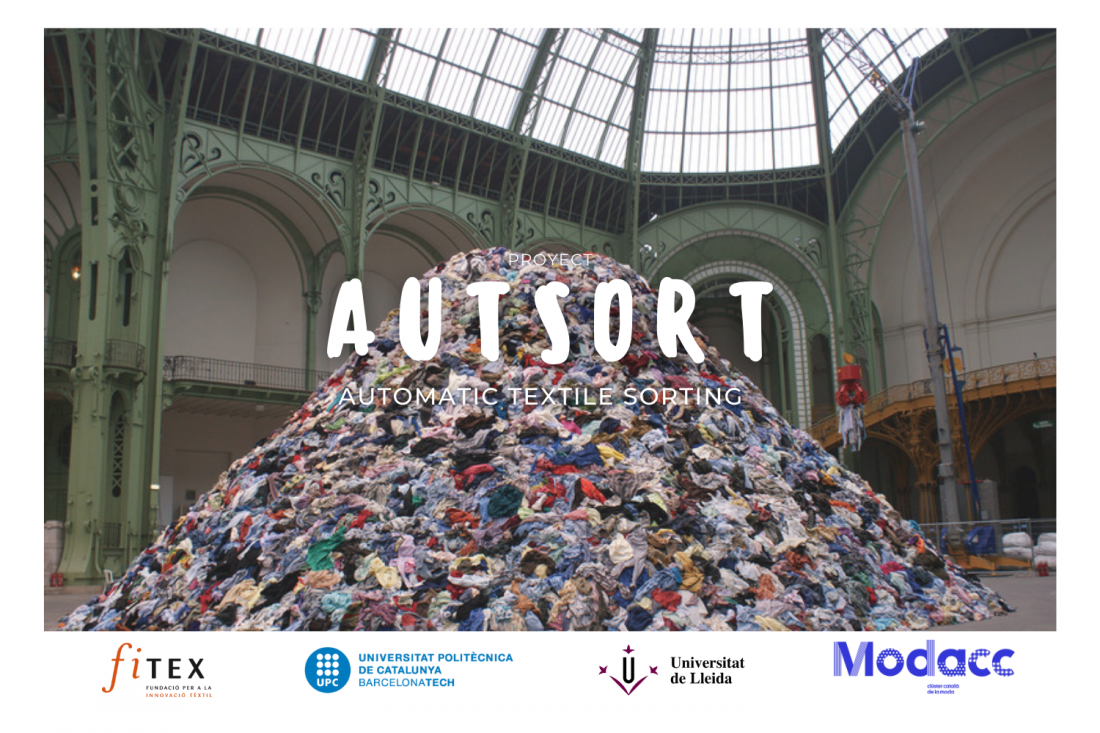CRE@CTIVE partner in Spain classifying fibre using near-infrared for recycling textiles!

One of the main challenges facing the textile sector today is recycling.
Most fabrics made require very different recycling processes due to their various components. Accurately classifying those elements will be a game-changer since it will help recycle clothes and move from a linear to a circular system.
AUTOSORT or Automatic Textile Sorting is a project developed and led by our Spanish partner, Modacc cluster, in cooperation with the textile technology centre FITEX, the Polytechnic University of Catalonia and the University of Lleida. AUTOSORT is a system that allows materials to be classified based on types of textiles and fibres using near-infrared (NIR) spectroscopy.
What does that mean for the textiles industry, and how does it work?
AUTOSORT incorporates sensors in the automatic fibre classification, which allows it to determine with great precision the presence of up to 13 different fractions of fibres from their NIR spectra in one piece.
To be implemented on a larger scale, Modacc made the classification algorithm available to the industry. All that's left is to develop the software that will integrate this artificial intelligence (AI) into the industrial textile machinery and the recycling sector.
The main objectives of the system are to reduce the amount of textile waste that goes into landfills or incinerators, promote recycling in the textile industry and reduce the carbon footprint of the production of new fibres.
Estimates show in Europe that each person consumes on average 26kg of textile products each year, which is why the fashion industry has long been working on implementing a circular economy. Additionally, the European directive of 2018/851 already obliges member states to implement selective collection of textiles before January 1, 2025, with the aim that textile materials are incorporated into recycling chains and thus reduce final rejection.
The AUTOSORT project, promoted by the Modacc Cluster in collaboration with the Foundation for Textile Innovation FITEX, the Polytechnic University of Catalonia, and the University of Lleida, has obtained funding from the AEI (Innovative Business Groups) program of the Ministry of Economy, Finance and Competitiveness of the Spanish government. The project has had a duration of 9 months and a cost of 87,000 euros.
The CRE@CTIVE project celebrates our Spanish partners for their innovative achievements and aims to support new ways in textile recycling. We hope to transfer those ideas across borders to create one strong circular economy across the Mediterranean through the creative labs, the cross border cooperation and workshops.







